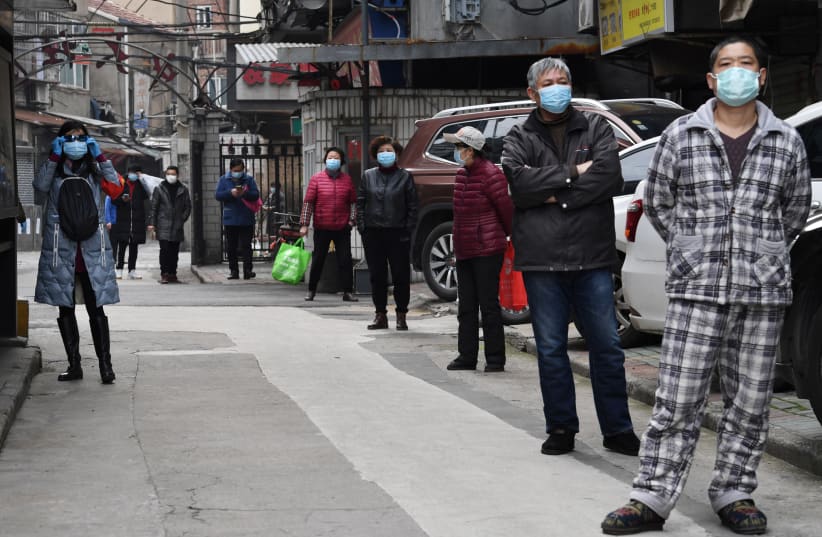However the similarities end with the city of origin.The virus featured in the book is developed in a lab outside the Chinese city of Wuhan as the "perfect" bioweapon. "They call the stuff "Wuhan-400" because it was developed at their RDNA labs outside the city of Wuhan," one character remarks to another, before going on to explain how the Chinese developed the weapon to "wipe out a city or country" with no need to "conduct a tricky and expensive decontamination" before moving in to take over the territory.In real life things are a little more mundane. Although coronavirus was first identified in Wuhan, it is not yet known how it made the jump to humans. Early theories suggested that it first crossed over at a food market selling live animals, while suggestions that the disease may have its origins in the Wuhan Virology Lab, China's only biosafety level four facility, have not been substantiated.And while the fictional virus kills by "[eating] away brain tissue like battery acid dissolving cheesecloth, [destroying] the part of the brain that controls all of the body's automatic functions," the coronavirus attacks the respiratory system, causing fever, coughing and shortness of breath.The fatality rate for coronavirus is not yet clear, but a senior public health official put it at somewhere between 0.1% and 1% on Thursday."Many people don't get sick and don't get tested," US Assistant Secretary for Health Brett Giroir told reporters, according to Reuters. "So probably for every case, there are at least two or three cases that are not in the denominator."The figure falls far below the 100% fatality rate of the fictional Wuhan-400.But the clear differences haven't stopped the book racing back up the sales charts, reaching number three in the UK behind Hilary Mantel's newly released The Mirror and the Light, and Alex North's The Whisper Man.A Dean Koontz novel written in 1981 predicted the outbreak of the coronavirus! pic.twitter.com/bjjqq6TzOl
— Nick Hinton (@NickHintonn) February 16, 2020
Novel races to top of Amazon after fans spot parallels with coronavirus
Dean Koontz's novel 'The Eyes of Darkness,' released in 1981, features a killer virus named 'Wuhan-400'.
